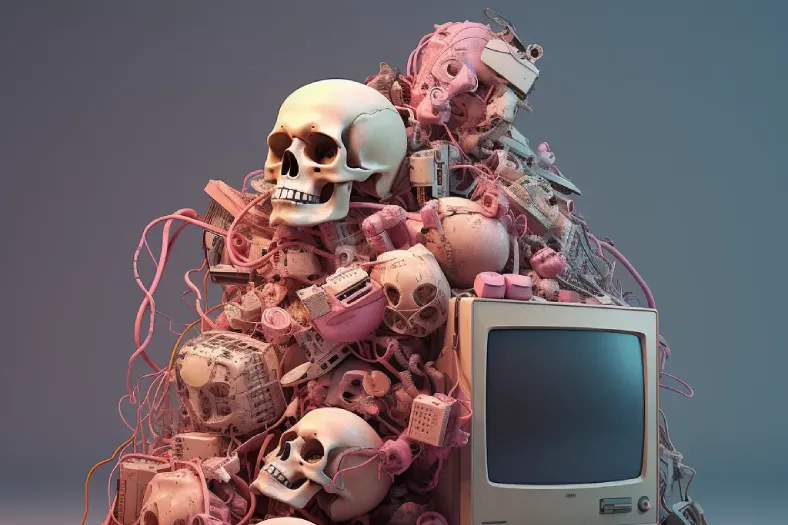As artificial intelligence continues to revolutionize healthcare, a concerning phenomenon called “model collapse” threatens to undermine the very foundations of AI-powered medical advances. A recent study published in Nature reveals how AI models can degrade over time when trained on recursively generated data. This has profound implications for healthcare, where AI is increasingly used for diagnosis, treatment planning, and medical research.
Why Should We Care?
- Degraded Diagnostic Accuracy: AI models used in medical imaging and diagnostics could become less accurate over time if they’re trained on data generated by previous AI models rather than real patient data. This could lead to missed diagnoses or false positives, potentially harming patients.
- Loss of Rare Disease Information: Model collapse tends to affect the “tails” of data distributions first. In healthcare, these tails often represent rare diseases or unusual presentations of common conditions. As AI models collapse, they may lose the ability to recognize these critical edge cases, leaving vulnerable patients at risk.
- Biased Treatment Recommendations: As AI models become more homogenized through collapse, they may develop biases that favor certain treatment approaches while neglecting others. This could lead to suboptimal care for many patients, especially those from underrepresented groups.
- Stifled Medical Research: AI is a powerful tool for analyzing vast amounts of medical data and identifying new patterns or potential treatments. If these models collapse, they may lose the ability to make novel discoveries, slowing the pace of medical advancement.
- Erosion of Trust: As healthcare providers and patients become aware of potential AI inaccuracies due to model collapse, trust in AI-assisted healthcare could erode. This might lead to resistance in adopting potentially life-saving AI technologies.
What Can We Do?
- Preserve Original Data: Healthcare institutions must prioritize the preservation and curation of original, high-quality patient data. This “ground truth” is essential for training and validating AI models.
- Implement Rigorous Testing: Regular evaluation of AI models against diverse, real-world datasets is crucial to detect early signs of model collapse.
- Develop New Training Techniques: Researchers should focus on creating training methods that are resistant to model collapse, perhaps by incorporating continual learning or data augmentation techniques.
- Increase Transparency: AI developers in healthcare should be transparent about their training data sources and model update processes. This allows for better oversight and early detection of potential issues.
- Invest in Human Expertise: While AI is a powerful tool, it’s essential to maintain and develop human medical expertise. Doctors and researchers should be trained to work alongside AI, understanding its strengths and limitations.
The potential of AI in healthcare is enormous, but so are the risks if we don’t address the challenge of model collapse. By taking proactive steps now, we can ensure that AI remains a reliable, powerful ally in improving human health for generations to come.



0 Comments